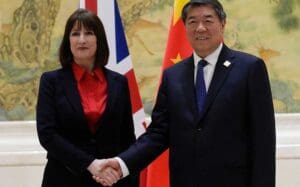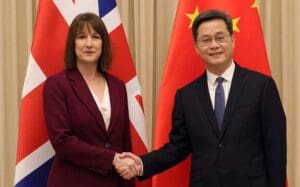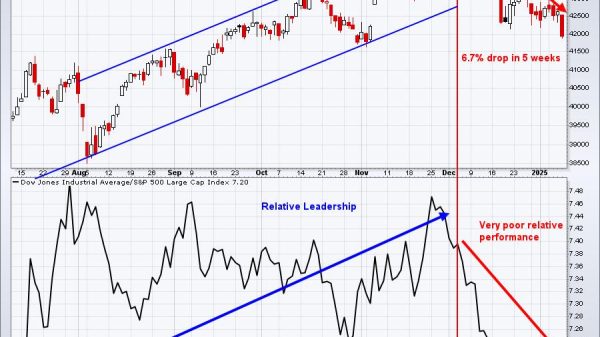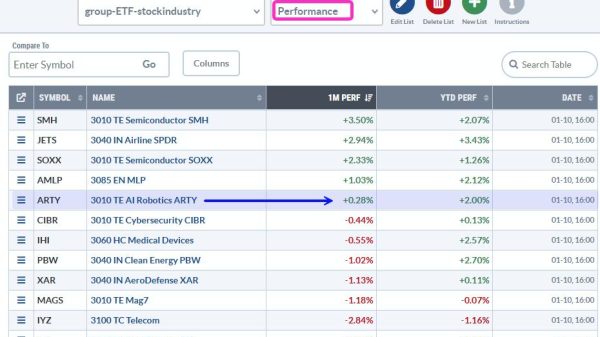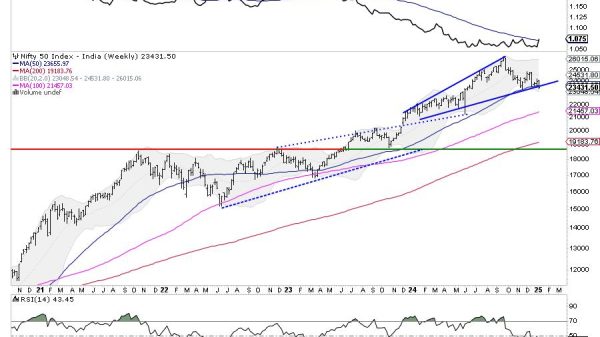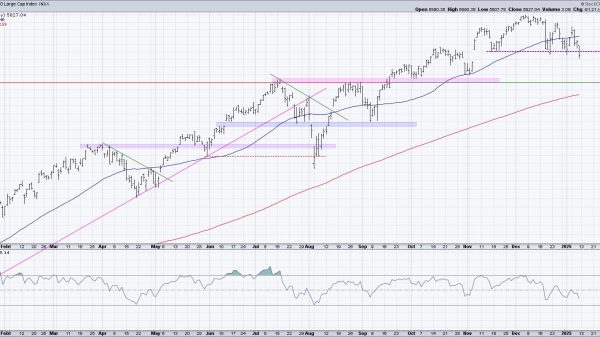HANOI — Vietnam plans to restart its biggest rare-earths mine next year with a Western-backed project that could rival the world’s largest, according to two companies involved, as part of a broader push to dent China’s dominance in a sector that helps power advanced technologies.
The move would be a step toward the Southeast Asian country’s aim of building up a rare-earths supply chain, including developing its capacity to refine ores into metals used in magnets for electric vehicles, smartphones and wind turbines.
As an initial step, Vietnam’s government intends to launch tenders for multiple blocks of its Dong Pao mine before the year’s end, said Tessa Kutscher, an executive at Australia’s Blackstone Minerals Ltd., which plans to bid for at least one concession. She cited unpublished information from Vietnam’s Ministry of Natural Resources and Environment, which did not respond to requests for comment.
The auction’s timing could change but the government plans to restart the mine next year, said Luu Anh Tuan, chairman of Vietnam Rare Earth JSC (VTRE), the country’s main refiner and Blackstone’s partner in the project.
The proposed restart of Dong Pao — whose timeline, scale and degree of foreign financial support have not been reported previously — comes as many nations fret about their vulnerability to supply disruptions due to China’s stranglehold on strategic minerals and its disputes with the US and its allies. Beijing this year imposed export curbs on minor metals used in semiconductors, which an influential Chinese policy adviser warned was “just a start.”
Vietnam has the second-largest rare-earth deposits, according to the US Geological Survey (USGS). But they have remained largely untapped, with investment discouraged by low prices that are effectively set by China because of its near-monopoly on the global market. Visiting Hanoi this month to upgrade bilateral relations, US President Joseph Biden signed an agreement to boost Vietnam’s ability to lure investors for its rare-earth reserves.
In interviews with Reuters, 12 industry executives, investors, analysts, and foreign officials described plans for Vietnam, including investments they said showed how talk of derisking supply chains to reduce reliance on China is translating into action. Some acknowledged the difficulties of forging a rare-earths hub but said the gambit could make Vietnam a viable player while assuaging strategic worries, even if China remained dominant.
Ms. Kutscher said Blackstone’s investment in the project would be worth around $100 million if it wins. She added that the company was talking to potential clients, including electric car makers VinFast and Rivian, about possible contracts with set prices that would shield suppliers from fluctuations and guarantee buyers a secure supply chain.
Sealing such deals would address a hurdle faced by developers in Vietnam. In recent years, Japanese investors Toyota Tsusho and Sojitz abandoned projects at Dong Pao after China ramped up supply, pummelling prices. The Japanese firms did not respond to requests for comment.
Yet despite the focus on derisking, it is unclear whether clients would be ready to pay a premium for Vietnam, said Dylan Kelly, of investment firm Terra Capital, noting the market in general was opaque.
Asked about VinFast’s potential involvement, a spokesperson for parent company Vingroup said the group’s entity in charge of raw-material procurement, VinES, had no current plans with Blackstone involving rare earths. He did not address subsequent questions about VinFast specifically.
Rivian did not reply to a request for comment.
RIVALING MOUNTAIN PASS
Effective exploitation of Dong Pao — which has sat dormant for at least seven years, according to an official at state-controlled miner Lavreco, which owns a concession — would propel Vietnam into the top league of rare-earths producers.
But refining rare earths is complex, and China controls many processing technologies. Dong Pao’s estimated deposits also need to be reassessed with modern methods, according to Blackstone.
Still, rare earths at Dong Pao are relatively easy to access and are mostly concentrated in bastnaesite ores, according to the Hanoi University of Mining and Geology.
These are typically rich in cerium, used in flat screens, and lanthanides, such as praseodymium and neodymium, which go into magnets.
Mr. Tuan said VTRE hoped to win a concession that would allow it to extract about 10,000 metric tons of rare-earth oxide (REO) equivalent a year, roughly one-third of the mine’s expected annual output. Production could start around the end of 2024, he said.
That would put Dong Pao’s output slightly below that of California’s Mountain Pass, one of the world’s largest mines, which produced 43,000 metric tons of REO equivalent in 2022, according to the USGS.
Vietnam also plans to develop additional mines. In July, Hanoi set a target to produce up to 60,000 tons of REO equivalent a year by 2030. China set a domestic quota of 210,000 tons last year.
Those goals would see Vietnam producing 5% to 15% of China’s projected output by the decade’s end, said David Merriman, a research analyst at consultancy Project Blue, who expects China to increase production over that period.
Vietnam’s targets were “ambitious, though they are not entirely out of the question,” he said.
US ENCOURAGEMENT
The US agreed during Mr. Biden’s visit to help Vietnam better map its rare-earths resources and “attract quality investment,” according to a White House fact sheet, a move that could encourage US investors to bid for Vietnam’s new concessions.
Reuters could not determine whether concrete plans involving US investors exist at this stage. Officials at the US embassy in Hanoi, the White House, and the Department of Commerce did not reply to requests for comment.
But recent US attempts to gain a foothold in the Vietnamese industry did not succeed, said John Rockhold, a consultant to the rare-earths sector and president of the Hanoi chapter of the US Chamber of Commerce, adding that one such plan involving VTRE collapsed this year.
That plan would have involved the shipment to the US of rare earths refined by VTRE and possible future investment in Vietnam of $200 million, according to a nonpublic report for unspecified US investors seen by Reuters.
VTRE confirmed the shipment deal had foundered.
Instead, VTRE in April announced a deal to supply 100 metric tons of REOs this year to Australian Strategic Materials. ASM declined to comment on Dong Pao’s exploitation.
Blackstone, which is a partner in that deal, operates a nickel mine in Vietnam and has determined that its processing facility in the country could handle ore from Dong Pao, according to a company statement.
FROM ORE TO MAGNET
Ultimately, VTRE plans to play a role in the whole rare-earth industry from ore extraction to the final products, said Mr. Tuan, who with his wife owns most VTRE shares, according to a list of shareholders he showed to Reuters. Blackstone said the ownership information accorded with its assessment following due diligence.
This is not an easy feat. The US currently exports its rare-earth ores to China for processing as it lacks its own facilities.
An existing VTRE factory in northern Vietnam specializes in separating rare-earth oxides from the extracted ore. The plant has capacity to process 5,000 tons of REO a year but the company plans to treble that to accommodate input from Dong Pao, Mr. Tuan said.
Once separated, oxides are turned into metals for use in magnets and other industrial applications. The metallization process is controlled by China, which produces 90% of rare-earth metals, according to the US Department of Energy.
But VTRE is running a pilot project to build a metallization factory with South Korea’s Setopia, said Setopia, which has no previous experience in the sector.
The initial combined investment would be around $4 million, mostly from Setopia, a Setopia official told Reuters, with a plant possibly ready next year.
In the downstream industry, South Korean and Chinese magnet firms are set to open factories in Vietnam, Reuters reported in August.
Dudley Kingsnorth, a professor at the Western Australian School of Mines at Curtin University, said Vietnam had some way to go, including in improving environmental practices, to realize its rare-earth goals.
Still, he said, Vietnam “has the resources, the mining, and processing expertise to provide alternatives to China.” — Reuters

